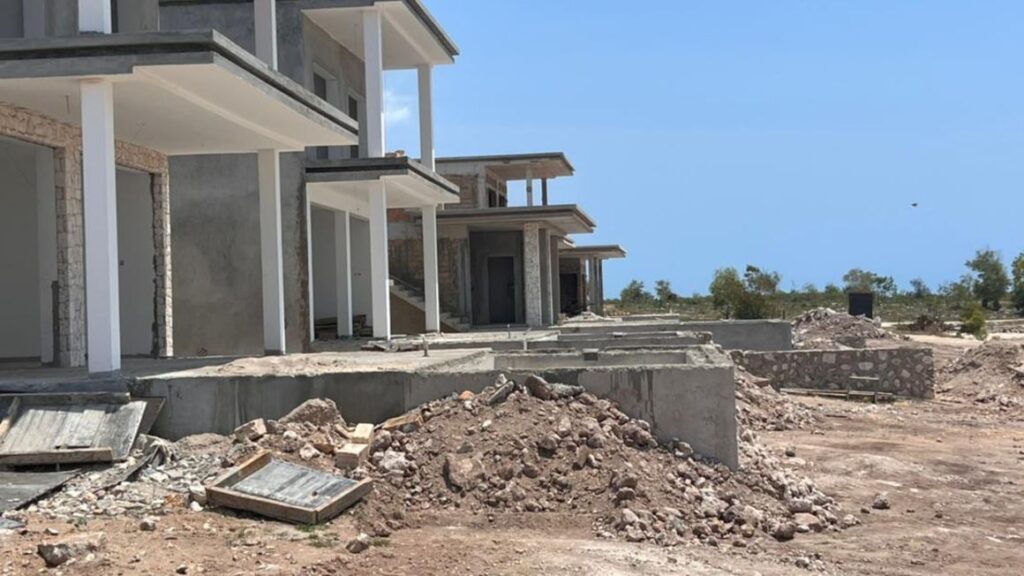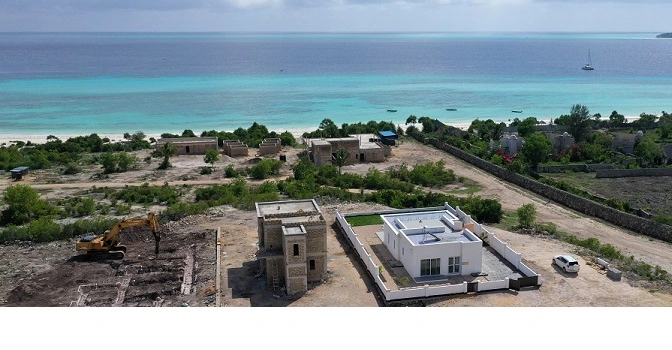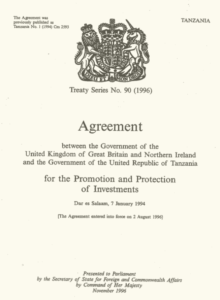
Summary
- Dar es Salaam. British firm Pennyroyal Limited has said it will sue the Tanzanian government over leasehold revocation in Zanzibar, but the Attorney General has confirmed that they are preparing to meet with the investor. “We have formed a government negotiation team which will look into the claims, and then arrange to meet with the claimants. We shall handle it in accordance with the bilateral treaties that exist”.
Negotiating Team Formed to Meet Developer
Dar es Salaam. British firm Pennyroyal Limited has said it will sue the Tanzanian government over leasehold revocation in Zanzibar, but the Attorney General has confirmed that they are preparing to meet with the investor.
“Yes, I’m aware of this case. We have formed a government negotiation team which will look into the claims, and then arrange to meet with the claimants. We shall handle it in accordance with the bilateral treaties that exist,” he said.
Mr Brian Thomson, owner of Pennyroyal, which was developing Blue Amber Resort in Matemwe, Zanzibar, has exclusively confirmed that the company has decided to file for arbitration under the Convention on the Settlement of Investment Disputes between States and Nationals of Other States (the ICSID Convention).
He told The Citizen that they were left with no choice but to seek international arbitration in London.
“We have followed the requisite process, We wrote to the government of the United Republic of Tanzania regarding our intent to file a case following the termination of our land lease, but to date we have not gotten any response,” Mr Thomson said.
However, audited reports filed at the Zanzibar Investment Promotions Authority (ZIPA) show that the developer had already injected the equivalent of Sh126.5 billion into the project.
The eventual total value of the project that lies on 411 hectares of land was valued at over Sh3 trillion upon completion.
Agreement between Tanzania and Britain
The governments of Tanzania and the United Kingdom of Great Britain and Northern Ireland on January 7, 1994 in Dar es Salaam, signed a promotion and protection of investments agreement which came into force in August 1996.
It is this agreement that protects British investments in Tanzania and likewise Tanzanian investments in the United Kingdom.
The agreement states that it recognises that the encouragement and reciprocal protection under international agreement of such investments will be conducive to the stimulation of individual business initiative and will increase prosperity in both states.
It also states that investments of nationals or companies of either Contracting Party shall not be nationalised, expropriated or subjected to measures having effect equivalent to nationalisation or expropriation in the territory of the other country except for a public purpose related to the internal needs of the country on a non-discriminatory basis and against prompt, adequate and effective compensation.
Joint Agreement between the Government of the United Kingdom and Northern Ireland and the Government of the United Republic of Tanzania for the Promotion and Protection of Investments
– November 1994
[editors note: valid at date of publication]
DOWNLOAD AND VIEW WHOLE DOCUMENT
Why URT and not Zanzibar?
But why has the developer chosen to sue the United Republic of Tanzania instead of the Revolutionary Government of Zanzibar which terminated the land lease?
According to international and local law, Zanzibar, where the investment is located, is part of the United Republic of Tanzania.
Therefore any acts of the Revolutionary Government Zanzibar in respect of British investments, fall under the purview of the 1994 agreement and makes the United Republic of Tanzania Government (which includes Zanzibar) responsible for such decisions.
What Others Say
Since the news of the termination of the title deed by the lands ministry and consequently the refusal to renew the construction permit by the Zanzibar Investment Promotion Authority several stakeholders have warned that this could have far-reaching ramifications.
Commenting on his Twitter handle, ACT-Wazalendo leader Zitto Kabwe said the decision had damaged the investment climate in the country.
“Zanzibar and ultimately Tanzania’s investment climate has been damaged. Financial institutions will be disincentive to lend in the sector and reputational risk is costly,” he wrote.
His sentiments were shared by a retired banker and financial analyst who spoke on conditions of anonymity saying that despite the location of Zanzibar investors will be forced to look elsewhere.
He says that given the manner in which the decision was reached financial entities will be very reluctant to lend money in markets that they consider volatile.
“These big lenders carry out due diligence when it comes to such projects and believe me this Pennyroyal situation sets a bad precedent for now. Just tell me who will throw his money in a place where things can change overnight?” he asks.
Share this news
This Years Most Read News Stories

Tanzania PS Wants Greater Public Awareness in Health Insurance
Dodoma — PERMANENT Secretary (PS) for Health Ministry, Prof Abel Makubi, said accomplishing universal health insurance requires greater awareness to members of the public before the programme kicks off on July 1, 2023.Continue Reading

Tanzanian insurance firms upbeat after first quarter business growth
Total gross written premiums for the insurance industry have increased by 13.68 percent in the first quarter of 2024, with small and medium-sized companies showing higher growthContinue Reading

Rare megamouth shark found in Zanzibar for the first time – why so little is known about it
The recent sighting was only the sixth time a megamouth had ever been found off the coast of Africa.Continue Reading












